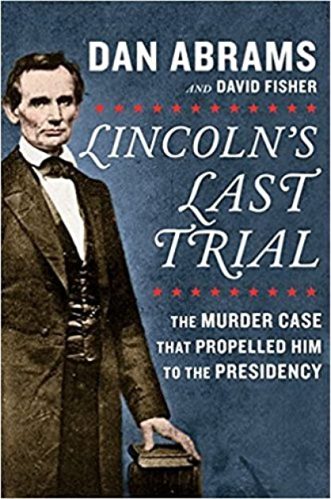
Short Summary
With help from transcribed court documents discovered in 1960, Dan Abrams details the final case of Abraham Lincoln’s highly successful legal career — an 1859 murder trail case between The State of Illinois and Quinn Harrison. Lincoln won the case and went on to win the 1860 presidential election.
Key Takeaways



Book Notes 
*Did not take chapter-by-chapter notes on this one. Running list below.
- This book is about an 1859 murder trial case — The State of Illinois vs. Quinn Harrison
- Trial was in Springfield, Illinois — hometown of Abraham Lincoln.
- Lincoln was a very successful lawyer before becoming president.
- Harrison was indicted with murder after killing his friend and neighbor, Greek Crafton, with a knife.
- Crafton attacked and Harrison defended himself.
- Lincoln took the defense case. He only took the cases he believed in.
- This was risky for Lincoln because he was the favorite to win the Republican Party nomination for the 1860 presidential run.
- He was in good favor with the US population. If he lost the case, he would suffer with the public.
- This was risky for Lincoln because he was the favorite to win the Republican Party nomination for the 1860 presidential run.
- The author used actual transcripts from the case handwritten by a stenographer, Robert Hitt.
- The transcripts were found by Harrison‘s great, great grandson in Fresno in 1960 in his house wrapped in a box.
- Stenographers in court were fairly rare at the time, but Harrison‘s family was wealthy, and Lincoln and Hitt had a good working relationship.
- Hitt had transcribed Lincoln vs. Douglas debates.
- Harrison talked junk about Crafton at a Fourth of July party in 1859. It had something to do with Crafton hitting Harrison‘s sister.
- A few weeks later, Crafton attacked Harrison in the store. Harrison did not want to fight. He held on to a countertop until Crafton and his brother dragged him into a back room in the store. They stumbled over boxes and Crafton‘s brother started hitting Harrison.
- Harrison stabbed Crafton in self-defense. Crafton later died from the injury.
- A few weeks later, Crafton attacked Harrison in the store. Harrison did not want to fight. He held on to a countertop until Crafton and his brother dragged him into a back room in the store. They stumbled over boxes and Crafton‘s brother started hitting Harrison.
- Hitt had went to school to become a stenographer, which was a lucrative trade at the time.
- John Palmer, a successful lawyer, prosecuted the case.
- Palmer argued that Harrison was waiting to kill Crafton.
- He used evidence that Harrison bought a knife as proof.
- Lincoln claimed self-defense. He used witnesses to try to show that Harrison was worried that Crafton might attack him.
- Lincoln was great with witnesses and the jury.
- He was known for being a master preparer.
- Lincoln used dialogue and witnesses to prove that Harrison resisted fighting until he was being double-teamed by Crafton and his brother.
- Most important evidence was Harrison‘s grandpa testifying that Crafton had accepted blame and knew he caused the result.
- Harrison’s grandpa was a reverend and had visited Crafton in the hospital. The admission was made there.
- Palmer tried to prove that nothing like that was ever said.
- Harrison’s grandpa was a reverend and had visited Crafton in the hospital. The admission was made there.
- Palmer fought to prevent the grandpa from taking the stand.
- The judge ultimately allowed the grandpa to take the stand.
- Harrison was not able to take the stand because accused people were not allowed to testify at the time.
- After long final statements by both sides, the jury ruled that Harrison had acted in self-defense.
- Lincoln won the case.
- Lincoln went on to win the 1860 presidential election.
- This was Lincoln’s very last murder trial.
- He was an excellent lawyer. He didn’t really specialize in anything. He defended many cases, but he also prosecuted some.
- Lincoln’s strengths as a lawyer:
- He was always ultra prepared
- He had an ability to connect with jury and witnesses
- He knew how to ask strategic questions of witnesses
- He knew how to get what he was after with witnesses






